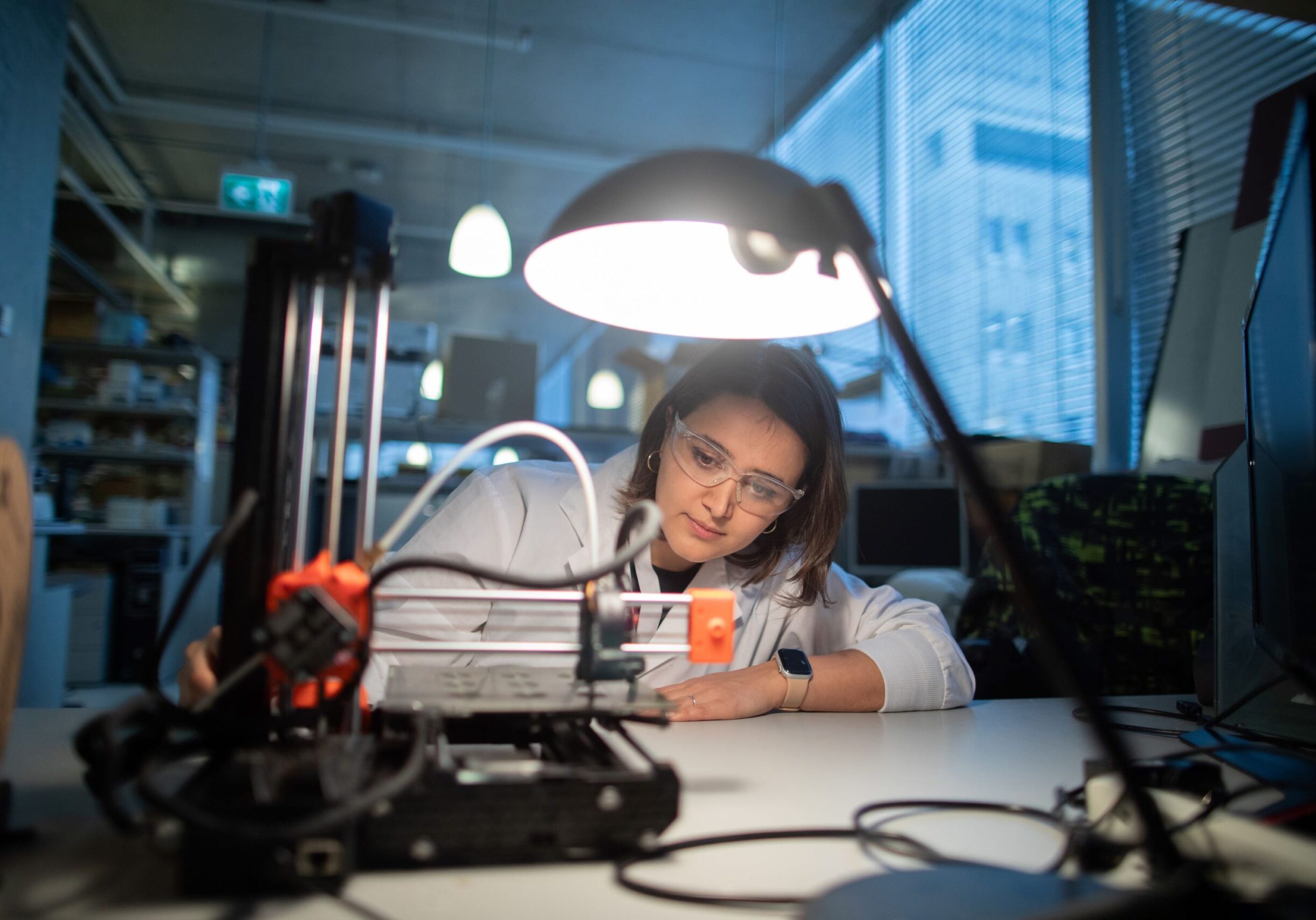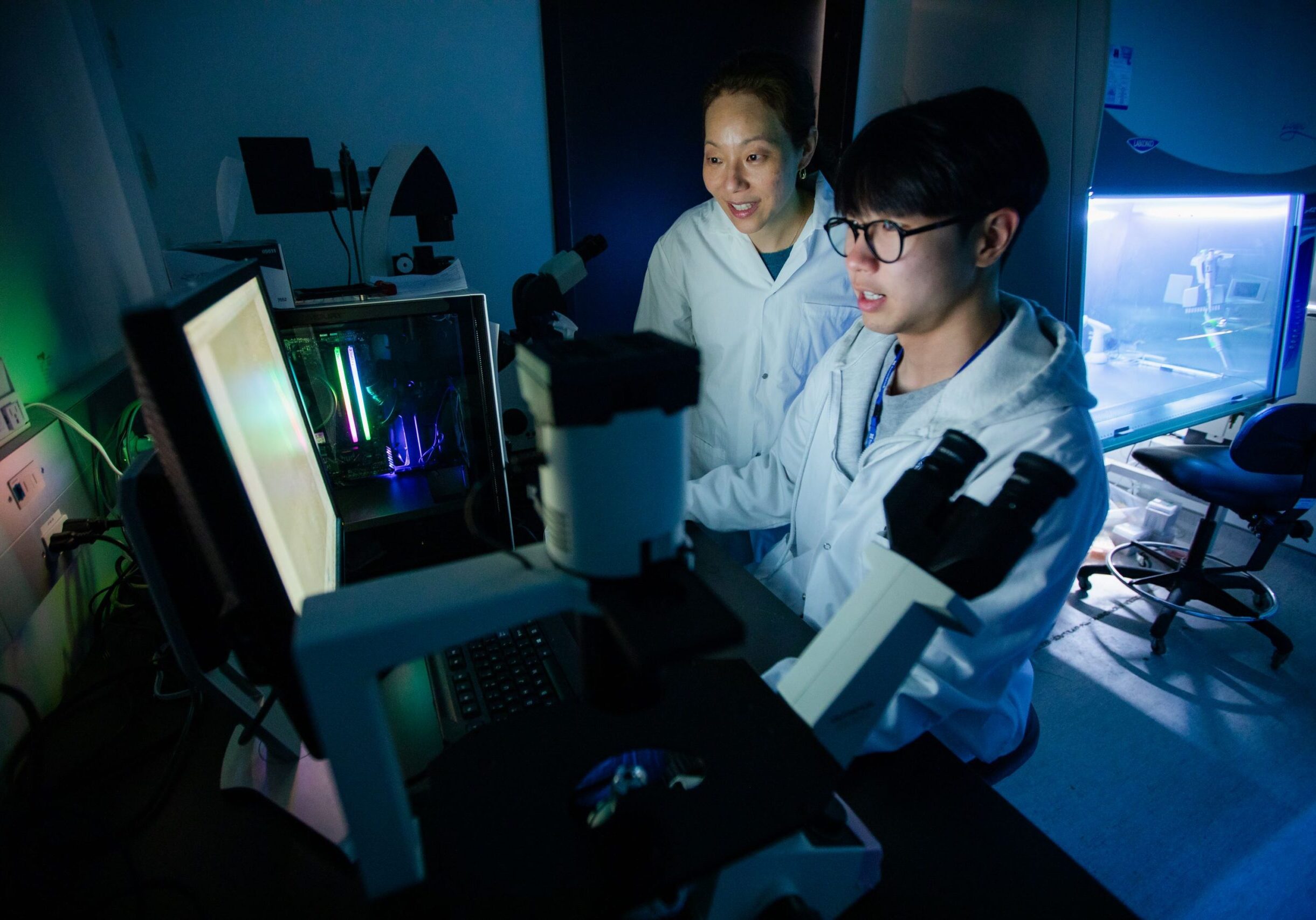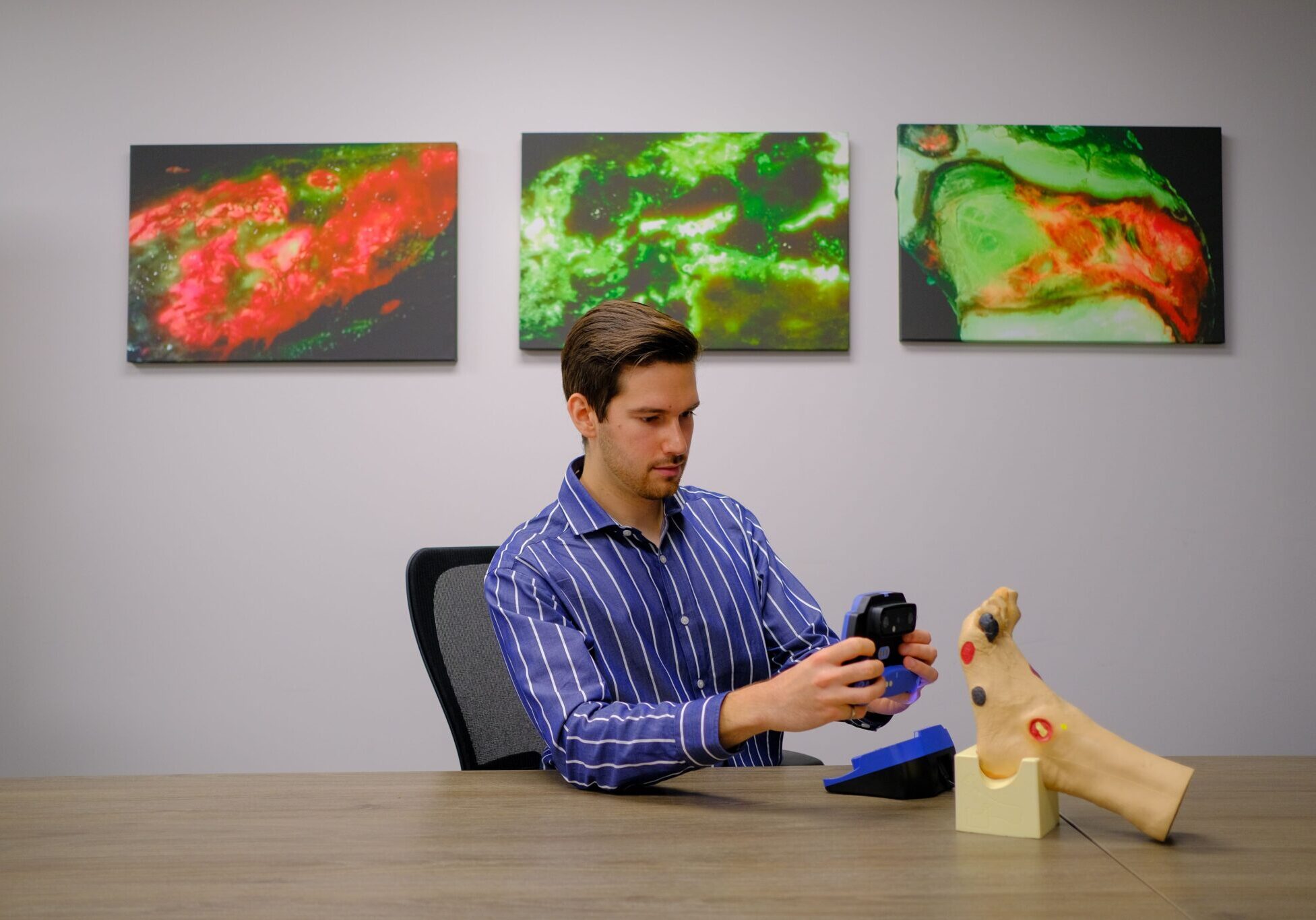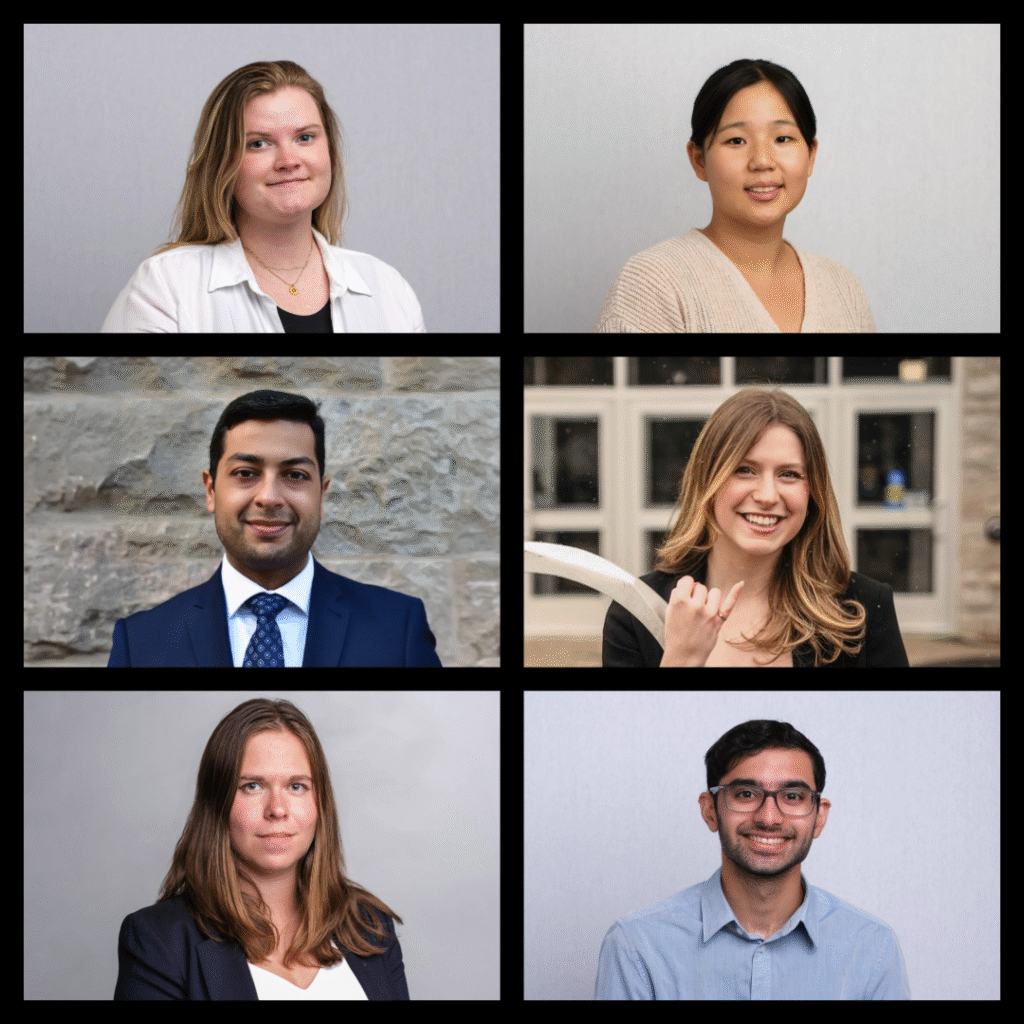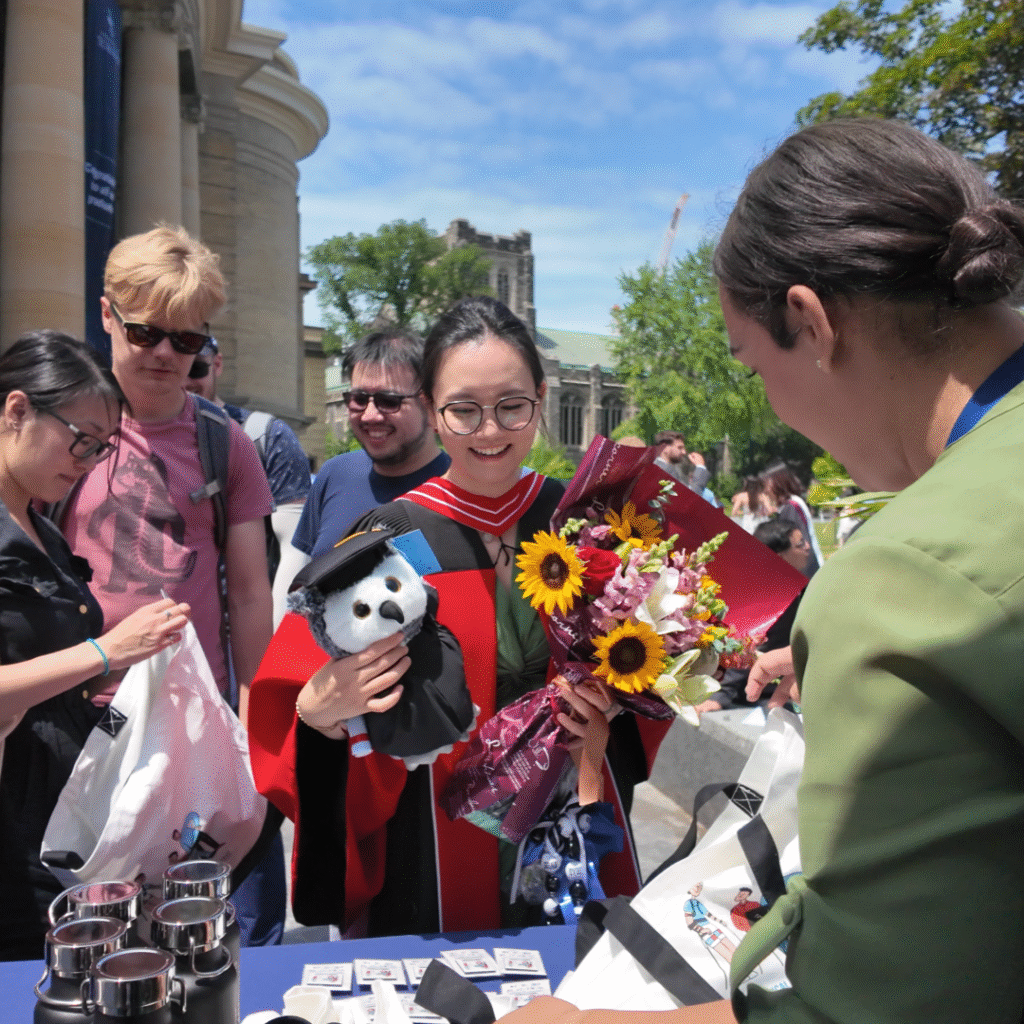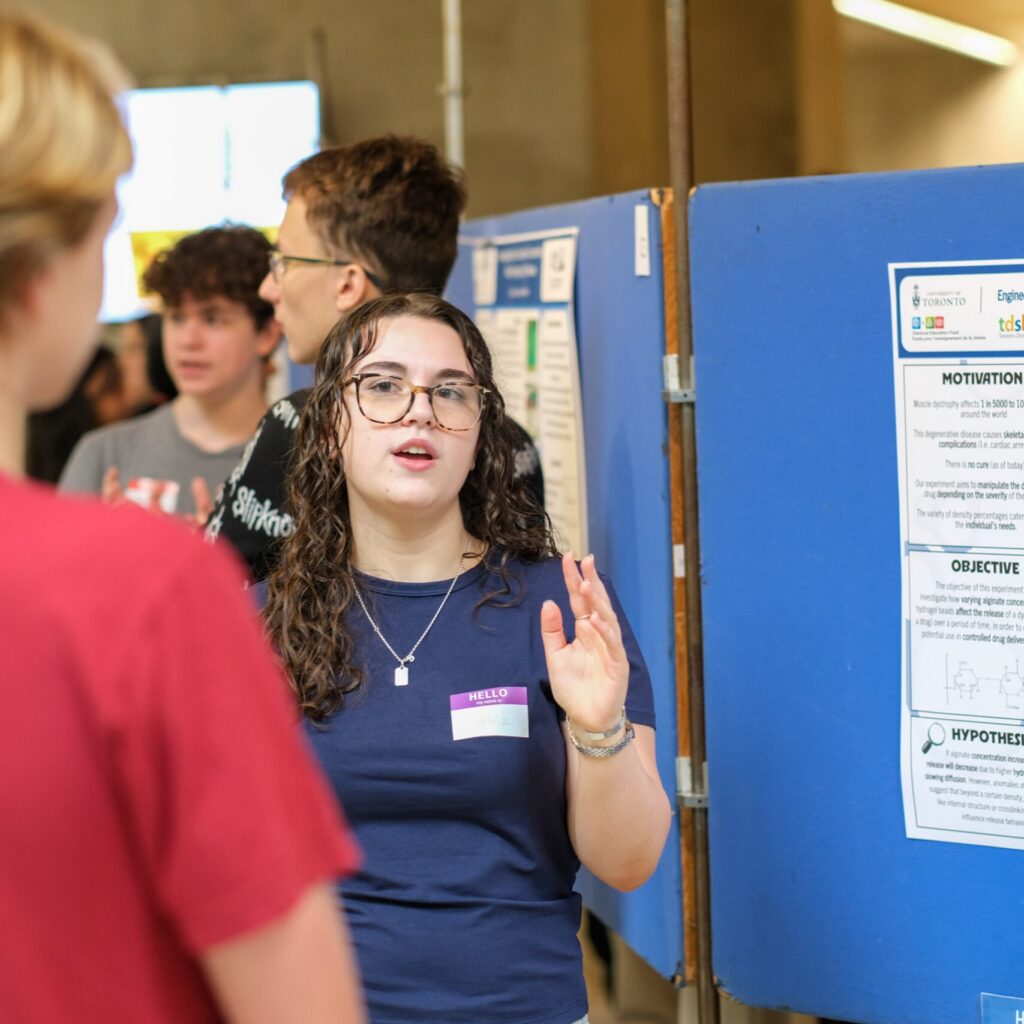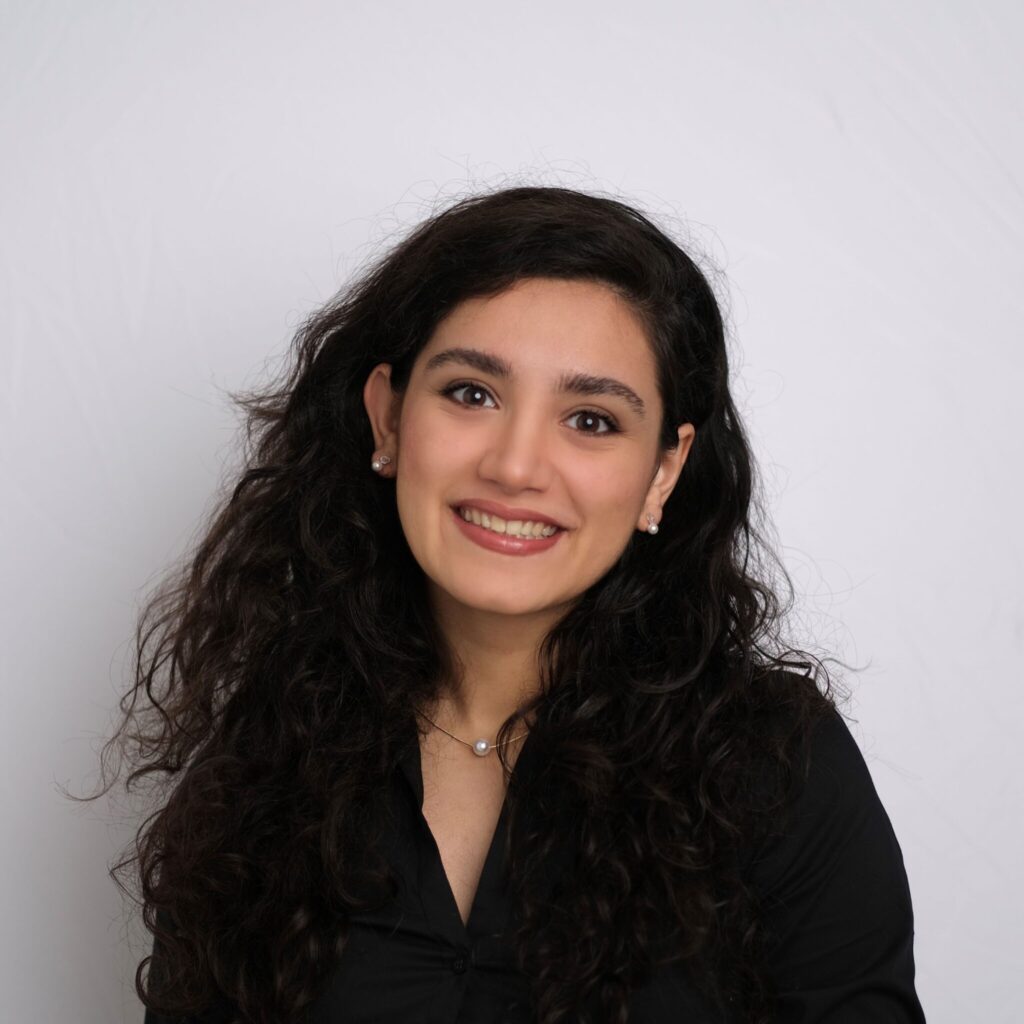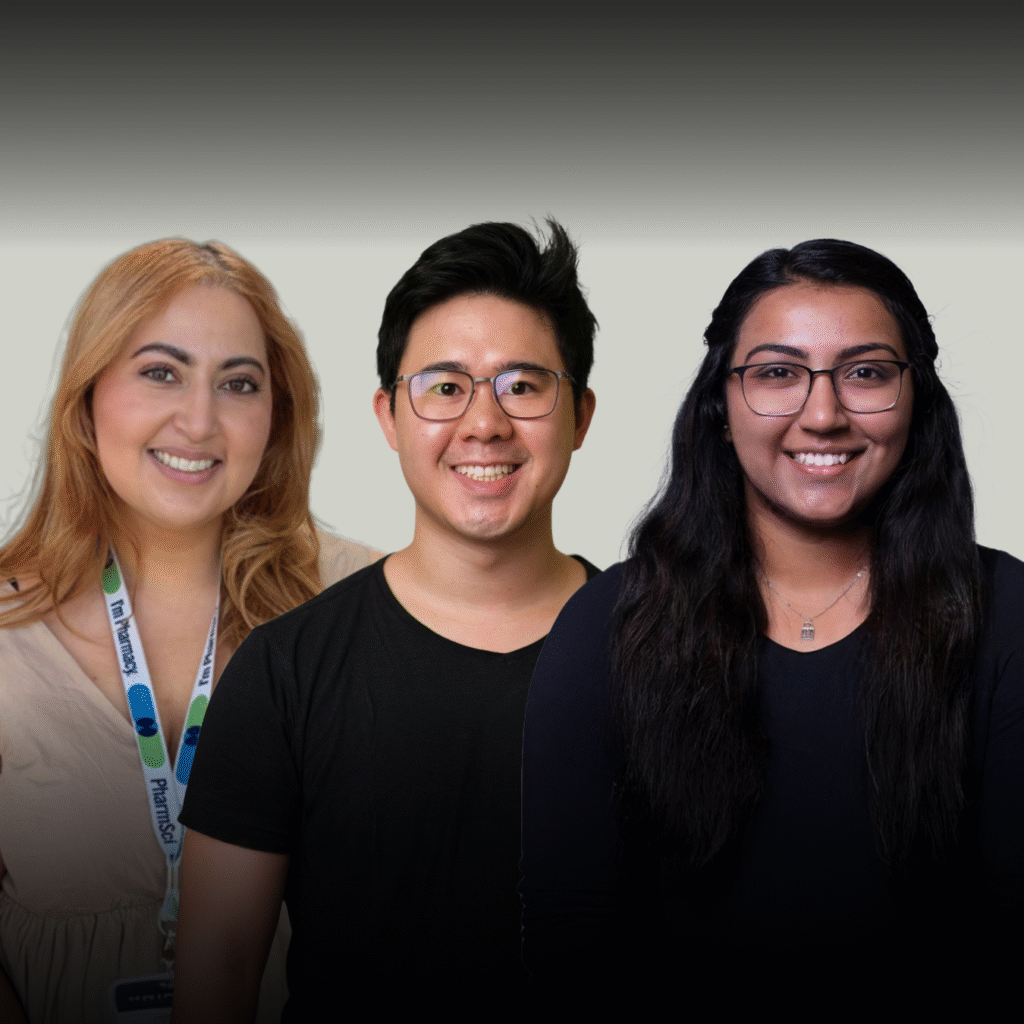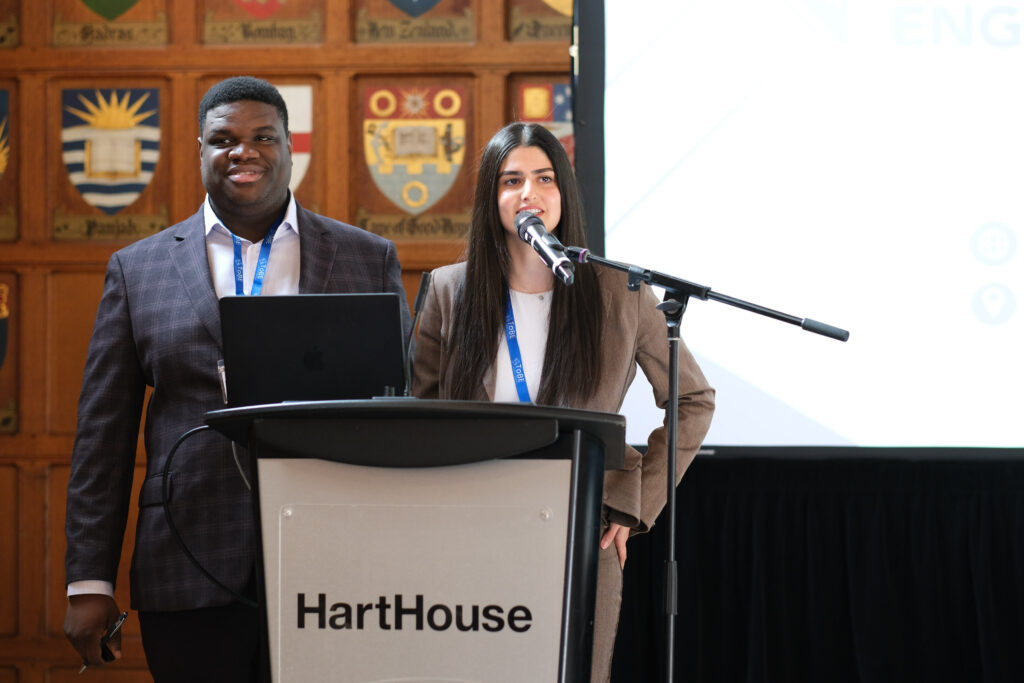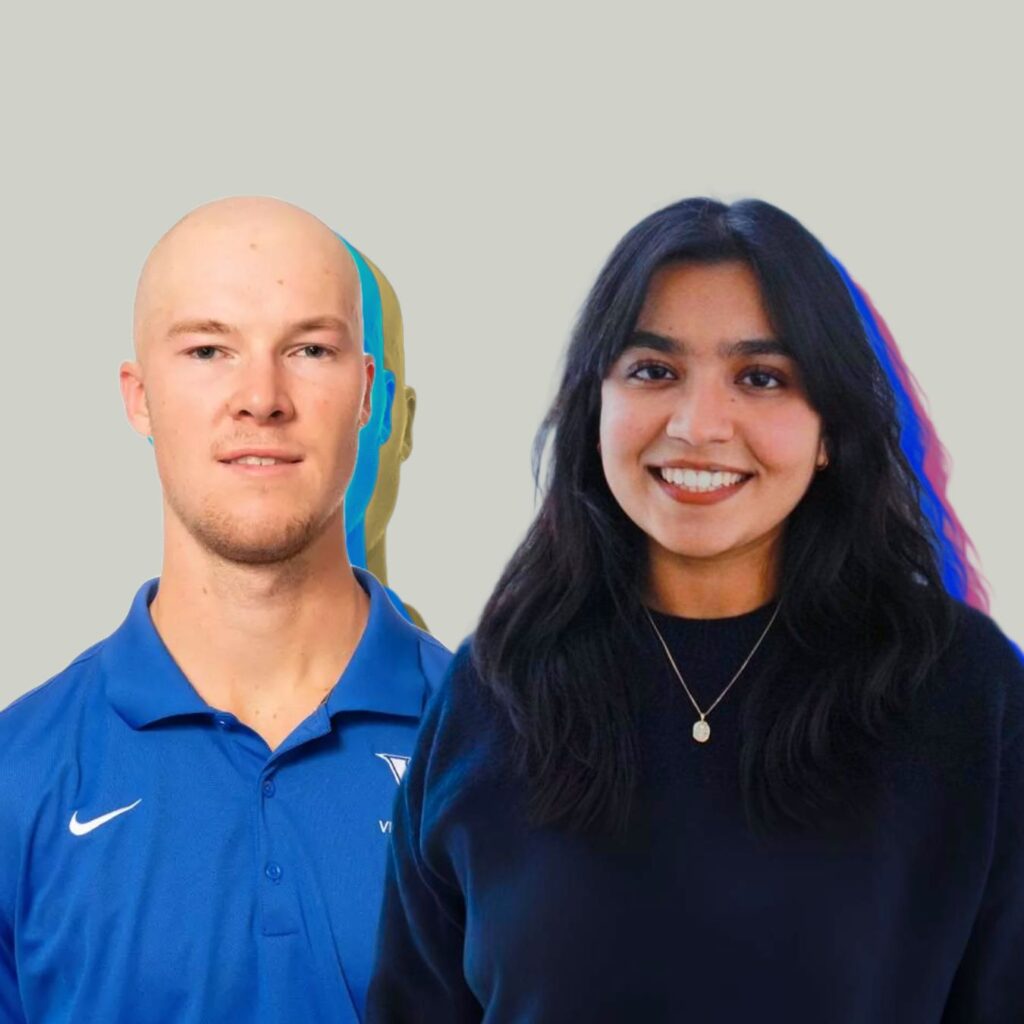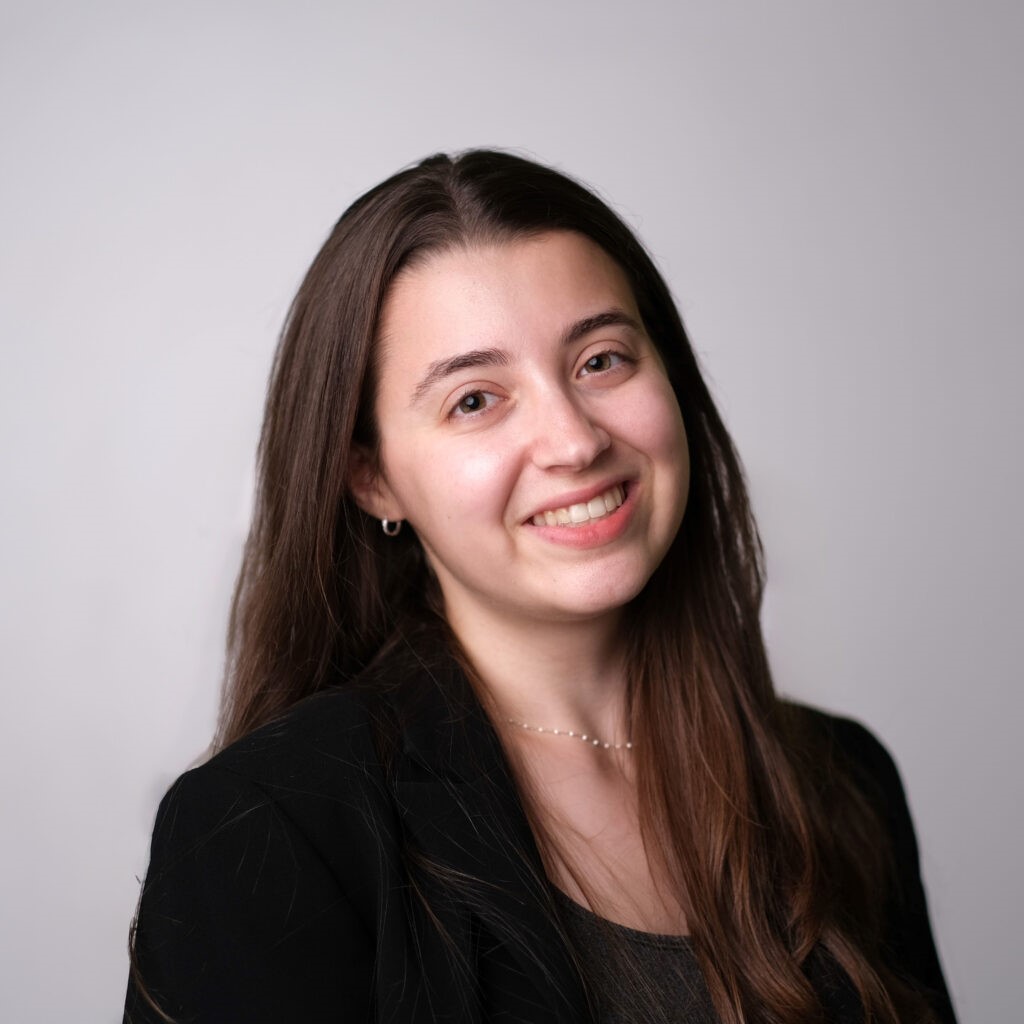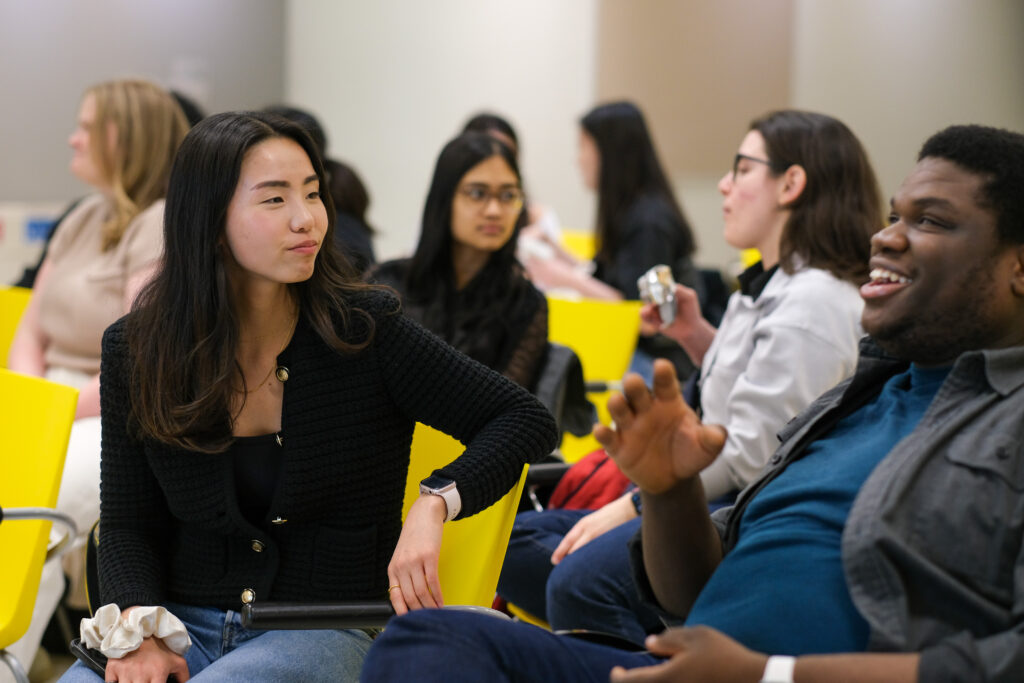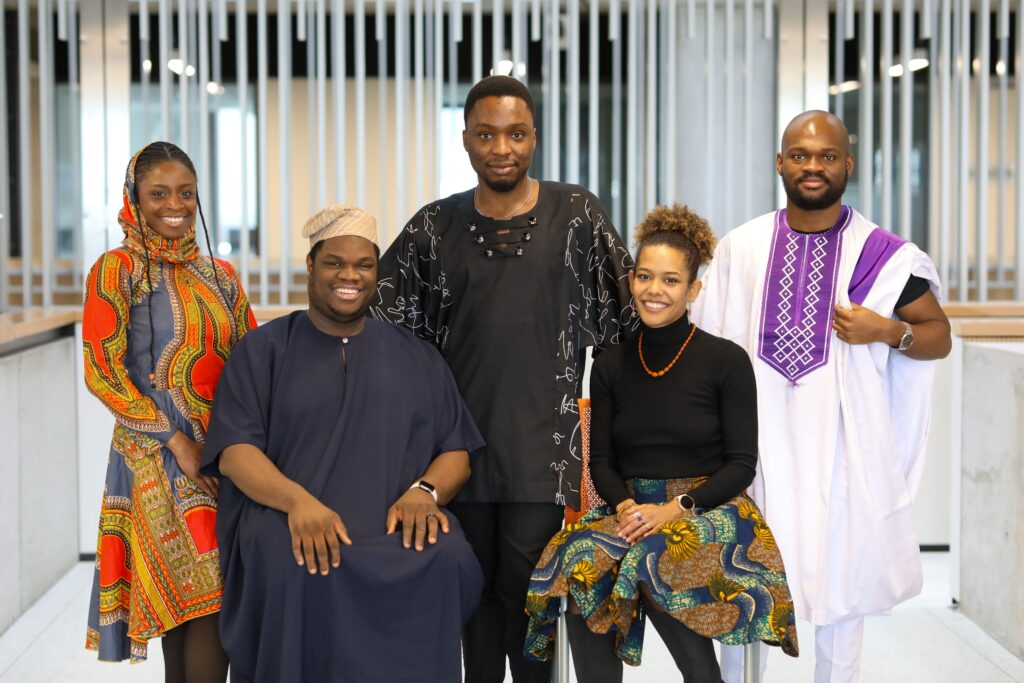Programs Overview
Are you a prospective student? Here at the Institute of Biomedical Engineering (BME), we connect researchers across the University of Toronto and its partner hospitals to develop innovative solutions to improve human health.
At the Institute of Biomedical Engineering (BME), we have 3 graduate programs and 2 undergraduate programs.
Quick Navigation
Graduate programs
Doctor of Philosophy
Research degree that exposes candidates to cutting-edge research in a laboratory
Master of Applied Science
Research degree that exposes candidates to cutting-edge research in a laboratory
Master of Engineering
Professional degree that exposes candidates to biomedical device design to commercialization
Graduate programs comparison
| Stream: | Research | Professional |
|---|---|---|
| Program: | PhD / MASc | MEng |
| Focus: | Research intensive training in a laboratory or clinical setting. | Training in biomedical device design, implementation, and commercialization. |
| Career Interests: | Individuals pursuing careers in academia, healthcare, government, or industry, who have a passion for research and development. • Motivated to conduct cutting-edge research • Passionate about academic collaboration and science communication • Keen on becoming key opinion leaders with distinct research specialization | Individuals interested in medical device production from design to implementation in human patients. • Seeking product design knowledge • Interested in learning entrepreneurship fundamentals • Eagar to gain real-world experience in the healthcare sector |
| Degree(s) Required: | Bachelor of Science, Bachelor of Engineering, Master of Applied Science (for PhD only), or Master of Engineering (PhD only). | Bachelor of Engineering or Bachelor of Science. |
| Outcome: | Program graduates excel as leaders in academia, industry, and government agencies across the globe. | Through work-integrated learning, graduates emerge as company founders, technology leaders, and start-up creators in the healthcare sector. |
| Program Length: | approx. 2 years (for MASc) or approx. 4 years (for PhD) | 1 year |
| Funding: | Unit-funded | Self-funded |
| Curricula: | • Coursework • Committee Meetings • Qualifying/Bypass Exam (for PhD) • Thesis • Defense • Final Oral Exam (for PhD) | • Coursework • Practical Experience |
Undergraduate programs and opportunities
| Year | Description | Opportunities |
|---|---|---|
| 1 | Engineering Science (EngSci) program students learn fundamentals of different science disciplines and begin team-based design training through praxis courses. | |
| 2 | EngSci students continue to receive foundational training through courses including BME205. Students select their major at the end of the second year. | USRA PEY Co-op |
| 3 | Biomedical Engineering major program students deepen their knowledge through rigorous academic and experiential training. | USRA PEY Co-op |
| 4 | Major students may focus on skill advancement and further knowledge and competencies through the completion of specialization courses, thesis, and design/capstone projects. |
| Year | Description | Opportunities |
|---|---|---|
| 1 | Engineering students establish knowledge in math and applied & basic sciences. | |
| 2 | Students expand knowledge and gain a greater depth of understanding through enhanced lab experiences and design opportunities. | USRA PEY Co-op |
| 3 | Bioengineering minor students may elect to pursue specialization courses grouped into three themes: Molecular Engineering, Cell & Tissue Engineering, and Clinical Engineering. | USRA PEY Co-op |
| 4 | Minor students may focus on skill advancement in one of the three themes (mentioned above) toward becoming a specialist in their respective field. |
Read more student news & stories
Quick Navigation
Six BME Master’s Students Awarded 2025 CIHR CGS-M Scholarships
Six BME Master’s Students Awarded 2025 CIHR CGS-M Scholarships Six MASc students from BME have been awarded the 2025 Canada Graduate Scholarships – Master’s (CGS M) from the Canadian Institutes […]
Congratulations to the graduation class of 2025!
Today, we had the pleasure of celebrating the convocation of more than 40 students from the Master of Applied Science, Master of Engineering, and Doctor of Philosophy programs at the Institute of Biomedical Engineering. Congratulations to all our graduates on reaching this important milestone—keep moving forward with confidence and purpose!
BME Student receives Connaught PhDs for Public Impact Fellowship Program
The Connaught PhDs for Public Impact Fellowship Program offers U of T doctoral students an opportunity to explore the world of public scholarship.
Three BME Students Awarded CIHR Doctoral Research Scholarships
Three BME Students Awarded CIHR Doctoral Research Scholarships Three doctoral students from the University of Toronto’s Institute of Biomedical Engineering (BME) have received the highly competitive Canadian Institutes of Health […]
Two BME MASc students receive Vector Scholarship in Artificial Intelligence
Congratulations to incoming MASc students Isha Sharma (Supervisor: Daniel Franklin) and Mathew Szymanowski (Supervisor: Jose Zariffa) on receiving the prestigious Vector Scholarship in Artificial Intelligence.
Samantha Unger receives Teaching Assistant Award
Samantha Unger, a PhD student in Biomedical Engineering, has received the Teaching Assistant (TA) Award. Since 2020, she has supported ESC180 and ESC190, consistently earning top marks for clarity and helpfulness. Known for making complex concepts accessible to all learners, she also designed and taught Physiology from the Inside Out for the DEEP Summer Academy and has contributed to designing education as a TA.
BME graduate student receives Adel S. Sedra Distinguished Graduate Award
Mohammadamir (Amir) G. Moghaddam has been named as the recipient of the 2025-26 Adel S. Sedra Distinguished Graduate Award, recognizing his outstanding academic achievements and leadership. This prestigious award, established in honour of former U of T Vice-President and Provost Professor Adel S. Sedra, is given annually to a doctoral student who exemplifies excellence in research and extracurricular leadership.
Black graduate engineering students expand community with new NSBE chapter
Thanks to a dedicated group of student leaders, Black-identifying members of U of T Engineering’s graduate student community now have more avenues for support and mentorship than ever before.
